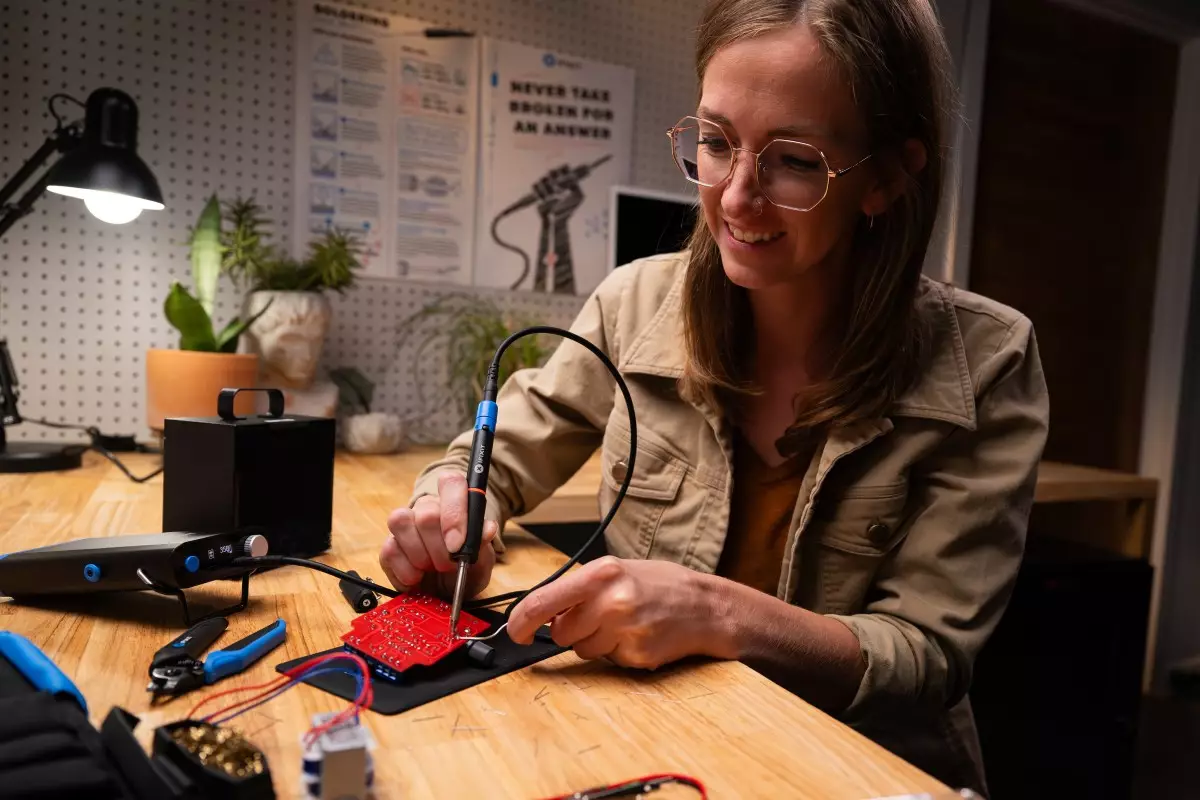The world of gadget repair is taking a transformative leap with the recent announcement from iFixit, one of the most recognized names in the DIY repair movement. Unveiling the Fixhub, a portable 100-watt soldering iron, iFixit aims to revolutionize the repair experience for users of all skill levels. The timing of this release, coinciding with Apple’s trendy “It’s Glowtime” event, is particularly notable, hinting at underlying tensions between iFixit’s advocacy for user repair and Apple’s historically cautious approach to user-serviceable products.
The Fixhub responds to a critical gap in the market: the accessibility of soldering tools for casual users. Traditionally, soldering irons have been intimidating for the average smartphone owner, often leaving them with limited repair capabilities. iFixit recognizes this barrier and has crafted the Fixhub to be both user-friendly and efficient. Notably, the device heats up in about five seconds and boasts an impressive battery life of eight hours on a single charge, making it convenient for quick repairs or extended projects.
What truly distinguishes the Fixhub is its dual functionality through USB-C ports, which not only allows users to charge the soldering iron but also offers the option to power other devices. This feature highlights iFixit’s dedication to practicality, encouraging users to embrace repair as a viable alternative to disposal.
The spirit of iFixit is embedded in its commitment to making repairs more approachable and removing obstacles that may intimidate novice repairers. In their own words, “No electronics workbench is complete without a soldering iron,” speaks to a fundamental belief that empowerment through repair is essential. The company has articulated its dissatisfaction with existing soldering solutions, claiming their innovation stems from personal necessity. This ethos aligns with the broader movement towards user repair, as DIY culture continues to flourish due to rising repair costs and evolving consumer attitudes.
As iFixit launches the Fixhub, it’s essential to consider Apple’s evolving stance on repairability. Historically, Apple has faced criticism for its repair-unfriendly design, which iFixit has often highlighted through low repairability scores. However, recent developments suggest a shift, with Apple introducing at-home repair kits and showing a willingness to accommodate external components, albeit reluctantly. This change is influenced by growing advocate efforts regarding right to repair legislation that pressurizes manufacturers to endorse user-friendly policies.
The ongoing tension between iFixit’s repair-centric vision and Apple’s proprietary practices sets the stage for an intriguing clash of ideologies. As iFixit’s Fixhub enters the market at a price point of $80, it certainly leaves both repair enthusiasts and Apple aficionados pondering the implications of accessible repair tools in an ecosystem that’s long favored control over flexibility.
IFixit’s mission with the Fixhub is clear: to democratize the repair process and inspire a culture of empowerment among gadget owners. As the product prepares to launch on October 15, pre-sales across multiple regions emphasize the demand for user-friendly repair tools. The developer’s commitment to easy repairs, coupled with Apple’s cautious evolution, forms a compelling narrative moving forward. The evolving landscape of gadget repairs points towards a future where individuals can confidently tackle their technical challenges, one soldered joint at a time.

